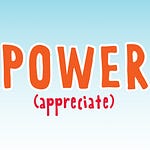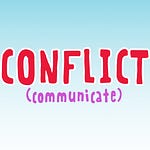Abbie: Hello and welcome to the CosmoParenting Podcast brought to you by the CMM Institute for Personal and Social Evolution. In this space, we invite you to see yourself as someone who is curious about and actively participating in creating your own meaning around parenting.
This is our ‘Animate’ episode, where we offer some strategies to integrate into parenting so you can bring to life the things we talk about here on the podcast. Let’s begin.
*music*
Abbie: Today, I am joined by gifted educator Stephanie Higgs, to offer us a best practices from an educator’s perspective. Hi, Stephanie.
Stephanie: Hey, Abbie.
Abbie: So, Stephanie, we have spent this month discussing power. What is the practice you’re offering us for this theme?
Stephanie: Today, I’d love to share one of my favorite goal-setting strategies from Gabrielle Oettingen’s ‘WOOP Method.’ In this strategy, you identify a wish, then you envision the desired outcome, you problem-solve through potential obstacles, and last but not least you construct a plan. The reason many of us are often unsuccessful with those famous New Year’s Resolutions is because we fail to envision the obstacles that have prevented us from achieving this goal before, and we don’t plan for those inevitable obstacles that will come our way.
For example, if I previously struggled with getting up early before work to exercise each day, I sometimes find this new passion and excitement, I get reinvigorated and re-energized, and I say okay, THIS is going to be the year when I start exercising each morning before I go to school to teach. I lay out my exercise clothes, I set my alarm, and off to sleep I go. The next morning when my alarm goes off, I peacefully reach over, turn it off, and go right back to sleep until it’s time to get ready for school. Why is this turning out EXACTLY as it has so many times before? I thought I was so much more excited this time! I really felt committed and ready! Well, it’s because I have neglected to pre-plan for the obstacle that gets me every single time! I LOVE sleep; I am NOT a morning person! And so, using Oettingen’s ‘WOOP Method’ helps me identify that wish, envision the outcome, kind of the ‘why’ behind it, and then stop to think through those obstacles that are currently keeping me from achieving this wish, before I make a plan to overcome those. So, something as simple as moving my alarm across the room might help me offset how easy it is to click a button, turn off the alarm, and go right back to sleep.
Kids can use this ‘WOOP Method,’ too! As they identify areas in their life where more leadership is needed, they can use the ‘WOOP Method’ to find one tiny way to impact BIG change! If you want more ideas here, head to woopmylife.org. It’s a great website that offers further ideas and support!
Abbie: Mmm. That’s such a cool resource! So, thanks for sharing that with us, Stephanie! And it’s making me think that- like we’ve said in a lot of these episodes- as we work to change our ways of being, it takes practice in all these little moments, so I want to spend another moment in the minutiae of our day-to-day lives and where power shows up there. So, I’m curious to know more about the way you see students engage with their own power in the classroom?
Stephanie: Well, I think it's important, Abbie, to sort of help them acknowledge and recognize what that power is. Something that comes up a lot when I think about power in the classroom is the idea of leadership. And that doesn't necessarily have to look like having the biggest or the strongest personality in a small group or in a whole class setting. But it's just looking at kind of the power and the responsibility that we have to influence the actions and the decisions of others. And so whether your personality is a little bit more of a natural leader or even if it's a little bit more of a natural follower, thinking about even those tiny ways that we can impact that big change by setting an example.
And so I think about times in the classroom where, you know, in a previous month, we talked about kind of reading the room. So the classroom is a great setting to keep practicing that skill of of reading the room and saying, wow, you know, I think our teacher started off by putting us in small groups and wanting us to work collaboratively. But I've noticed that the room is getting pretty rowdy and, you know, the teacher keeps having to kind of stop and interrupt us and, you know, kind of fuss about the volume and get us restarted. And so whether I have kind of that natural leadership type personality and I'm ready to take charge and make a plan with my group, or whether I'm a student who sits back a little bit more and is a little bit of a natural observer, there's still a lot of power there in sort of modeling the behaviors that we want others to emulate. So it could be as simple as, hey, guys, she's warned us, you know, three different times that we've kind of got to watch our volume. So I know we're all really excited, but could we come up with a quick plan where each of us takes turns sharing?
And so whether you're more of a leader of a personality or a little bit more of a follower, interjecting with something small like that when you've kind of read the room. And then use that power kind of for good and to kind of positively impact those around you. It's just a tiny example of how we can really kind of, you know, exert that power in a way that is positive and, you know, is going to elevate the quality of other students who are involved.
Abbie: Mmhmm. I think that's really helpful to think about power as leadership, as one embodiment of power. And I think it's important for us to be considering, like you're saying, almost the purpose and the responsibility of power, like power to what end, you know? And so, using a communication perspective, the language I would use is its better social worlds- that's the point of it all is that we're trying to create our better social world.
So that's why we would want to be thoughtful about how we show up and implement all of these practices that you've been teaching us because we want to create better social worlds in our parenting or outside of it. And so I think it's really important for ourselves, and again, something to pass on in parenting, to help us to empower ourselves, to be reminded that we're all participants in the creation of our social worlds, that we can step into our own power and we can make change.
So, thank you so much for joining me today, Stephanie! And thanks to everyone listening for joining us as well. You can connect with Stephanie on Instagram @littlemissgifted and you can check out our other CosmoActivities and additional resources at www.cosmoactivities.com. We are so grateful to be on this journey with you. And we will see you next week for the final episode of the month where we will talk communication on the theme of power.
*music*











Share this post